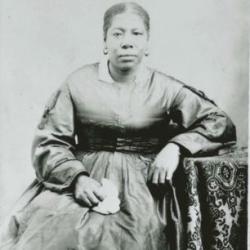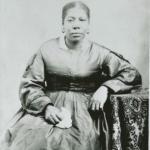
This article of mine appeared in the print edition of the Deseret News on Thursday, 27 December 2018, as well as in the online edition of LDS Living:
“Why Does the Book of Mormon Reference an Ominous “East Wind”?”
***
My latest “Editor’s Introduction” to a volume of Interpreter: A Journal of Mormon Scripture has just appeared:
“The Interpreter Foundation and an Apostolic Charge”
***
I published this article back in the Deseret News on 1 January 2015:
January, the first month of the calendar year, most likely takes its name from the ancient Roman deity Janus, who was believed to be the gatekeeper of heaven. More generally, he was the god of doors, gateways (including city gates) and boundaries, and thus of beginnings and transitions, as well as a patron deity of traveling, trading and shipping.
Jan. 1 was New Year’s Day for the ancient Romans, who regarded beginnings as indicators or omens for whatever would follow. Accordingly, on the first day of January they would exchange good wishes as well as honey, dates, figs and coins.
Invoked at the beginning of each new year with burnt offerings of special cakes, Janus was peculiarly Roman; unlike most Roman deities, he had no Greek equivalent. He was typically represented with two faces, looking both to the past and toward the future.
Some ancient sources, however, say that Juno, the wife of the chief Roman god, Jupiter, was the goddess of the month, and even that January is named after her rather than Janus. For my purposes here, though, precisely how the month received its name is unimportant: Both Janus and Juno were connected with beginnings and transitions. Juno was the goddess of hearth and home, and was closely associated with conception and delivery. Juno and Janus presided together each month over the birth of the new moon.
Modern members of The Church of Jesus Christ of Latter-day Saints worship neither Janus nor Juno, but they should never forget that the God they do worship is, very emphatically, the Lord of new beginnings.
Repentance permits us, Janus-like, to look toward and reflect upon the past while turning with renewed purpose toward the future. The gift of the Atonement so clearly explained in the New Testament and, perhaps even more clearly, in the Book of Mormon, is already implicit in the Old Testament: “Come now, and let us reason together, saith the Lord: though your sins be as scarlet, they shall be as white as snow; though they be red like crimson, they shall be as wool” (Isaiah 1:18). “Return unto me, and I will return unto you, saith the Lord of hosts” (Malachi 3:7).
The hope of resurrection and the prospect of life even beyond the grave illustrate our limitless potential and the unending opportunity that has been given to us, however difficult our current circumstances may seem and however dejected we may sometimes feel. They declare that no defeat here in this world need be permanent, that no loss need be forever.
In baptism and in the weekly renewal of covenants associated with the sacrament, we have powerful symbols of new beginnings. We are buried in the water, as Jesus Christ was buried in the tomb. But, because of him and like him, we emerge born again to new life. The heavy rock that sealed him, seemingly forever, in his grave and that appeared to have permanently ended his mission in humiliating defeat was unable to prevent him from rising again in triumph.
John the Revelator saw him while exiled upon the small island of Patmos. “And he that sat upon the throne said, Behold, I make all things new” (Revelation 21:5).
The division between calendar years is only traditional and a human convention, much like the boundaries between states. But the practice of reflecting upon our past and of resolving to act better in the future is a good one at any time — on the first of January no less than at baptism and every week during worship services — and we should do it often.
It’s a pity that, all too frequently, many people begin the New Year with overindulgence and in a chemically induced haze. If the Romans were right, that the beginning of a year is an indicator or omen for what will follow, such practices are ill-considered, and perhaps even (literally) ominous.
This season is a time for fun, of course, and for family and friends. But it should also be an occasion for serious reflection, for taking stock and for determining to move forward during the coming year.
The marvelous English writer G. K. Chesterton made an excellent point when he suggested that, “The object of a New Year is not that we should have a new year. It is that we should have a new soul.”
Through repentance, resolution, renewed covenants and the help of the Spirit, a “new soul” is actually possible for each and every one of us. Hallelujah!
Posted from Cairo, Egypt











